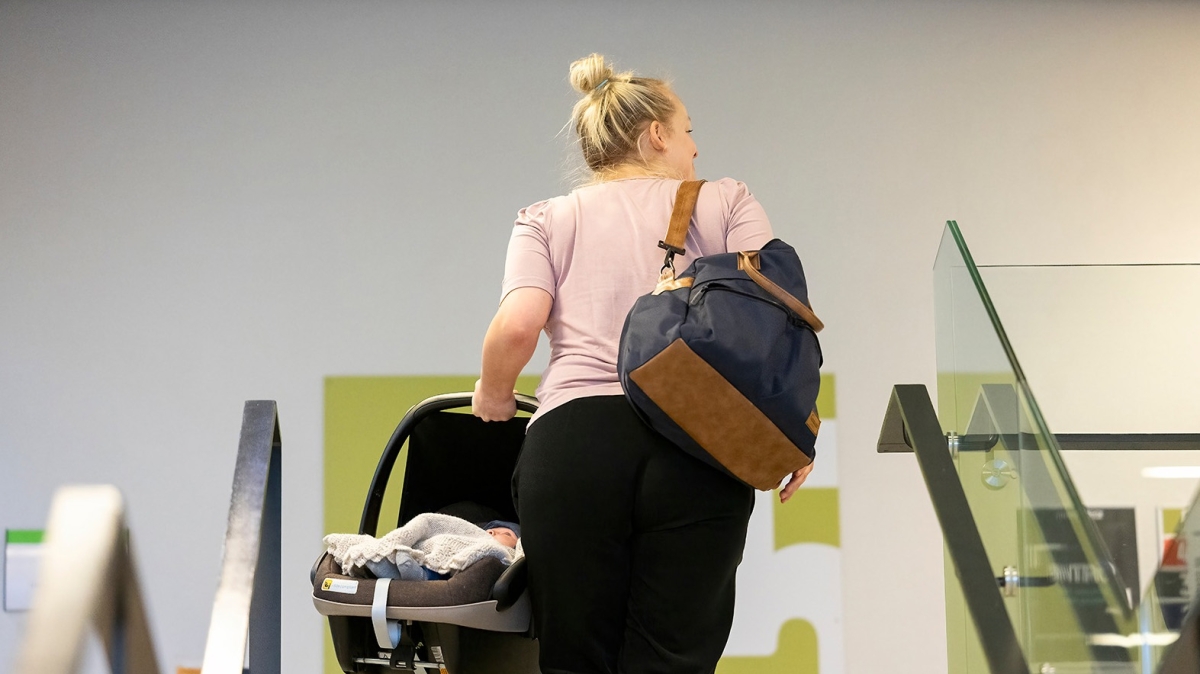26. Nov 2024
Health and welfare, a top field for Faroese expat professionals

Hundreds of young people move from the Faroes every year — most of them for educational purposes. About 40% of each year group moves abroad in their twenties. Only about half of them return to the Faroes later in life. In other words, one in five in each year group no longer lives in the Faroes. This has led to an increase in the number of individuals officially registered as long-term residents of the Faroes but residing abroad.
The number of persons registered as long-term residents of the Faroes who still reside abroad and who are registered in Denmark as having a skills-based qualification has increased by 3,600 since the turn of the century.
These figures come from a new report compiled by Statistics Faroe Islands, based on data from the Danish educational authorities, obtained in collaboration with Statistics Denmark. If a person has more than one qualification at the same level of education, the most recent qualification is included. The data covers persons who have lived in the Faroe Islands, have a Faroese social security number and have their qualification registered in Denmark.
One-third educated within health and welfare
The skills-based qualifications of these approximately 3,600 people cover a wide variety of educational disciplines. The table below shows the qualifications divided into ten main educational fields.
[px-graph-6]
The table shows that almost a third of all these 3,600 people are educated within the field of health and welfare, which includes elderly care, childcare, nursing, medicine, therapy and rehabilitation, dental health and social work. Most of them are qualified health workers, health visitors, educators, nurses and doctors.
Other popular educational subjects in this context include construction, law, social work and transport services, which include ship captains and masters.
The table below shows the 30 most common educational subjects for the 3,600 individuals registered as long-term residents of the Faroes, who since the turn of the century have been added to the list of people living abroad and having a skills-based qualification registered in Denmark.
[px-graph-1]
Bachelor’s degrees most common
About 1,400 (40%) of the 3,600 people hold a bachelor’s degree. This is followed by a near-equal share of people with a degree at either a vocational upper secondary or master’s level.
The most common subjects of study vary across different educational levels. For example, educators are trained at bachelor’s level, doctors at master’s level and health workers/health visitors at vocational upper secondary level.
The charts below show the five most common subjects within each educational level for the 3,600 people.
The first chart shows that many qualifications at vocational upper secondary level fall within the ‘Care of the elderly and of disabled adults’ category, which predominantly consists of health workers/health visitors. Many also have vocational training in various types of office work.
[px-graph-2]
At bachelor’s level, the most popular educational field is ‘Child care and youth services’, which mainly includes pedagogues, followed by ‘Nursing and midwifery’.
[px-graph-3]
The most popular educational field at master’s level is medicine. Note that the ‘Interdisciplinary programmes and qualifications involving Information and Communication Technologies’ category mainly includes computer science, MSc in economics and IT and that ‘Business and administration not further defined’ predominantly covers MSc in economics and business administration.
[px-graph-4]
Most of the PhD holders are trained in medicine. Note that ‘Engineering and engineering trades not further defined’ mainly covers technical sciences and that ‘Natural sciences, mathematics and statistics not further defined’ mainly covers natural sciences.
[px-graph-5]
About this report
This report shows the highest educational level registered in the Danish educational system for persons who at the end of the reference year were registered as long-term residents in the Faroes but living abroad.
Long-term residency status in the Faroes means that a person has either lived in the country for half of their life or for seven out of ten consecutive years at one point in their life.
Since long-term residency figures are based on housing records in ten-year periods, long-term residency data is compiled from 1995, when the first ten-year period of reliable housing records ended after population data became available from the national register in 1985.
If a person has more than one qualification at the same level of education, the most recent qualification is included.
This report is based on data from the Danish educational authorities, obtained in collaboration with Statistics Denmark. The data covers persons who have lived in the Faroe Islands, have a Faroese social security number and have completed their education in Denmark.
This report is the first step by Statistics Faroe Islands towards compiling education statistics both for people living in Faroe Islands and also for people with long-term residency status in the Faroes residence but who live abroad. The next step will be to compile education statistics for those studying in Denmark.